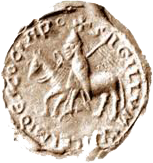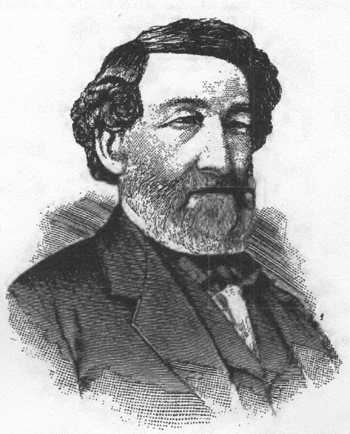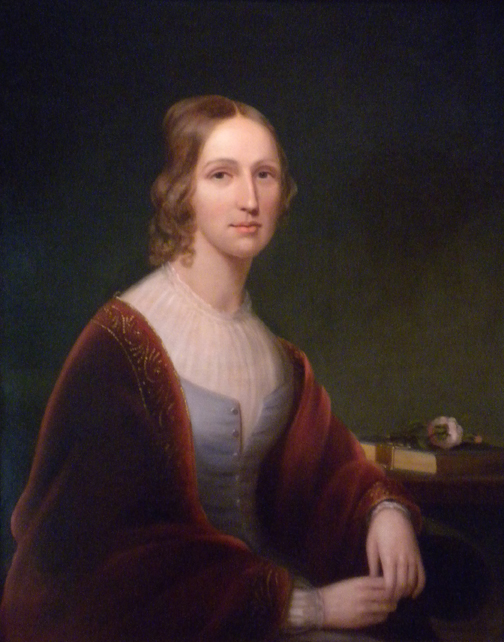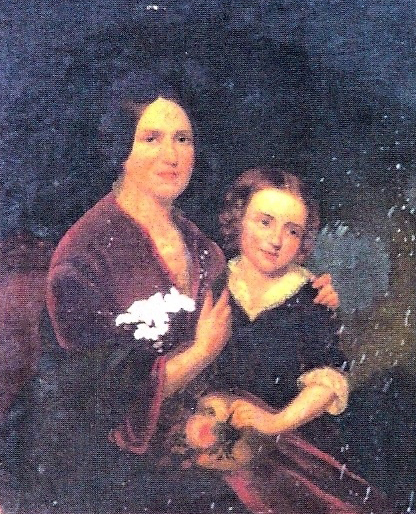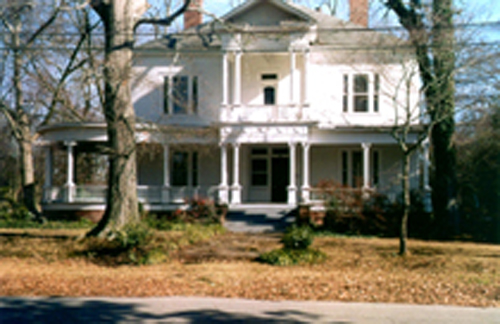The McBride family
Robert McBride (1768-1841)
Jemima McBride was one of four daughters of Robert McBride and Alice Cardwell. Her grandfather was George McBride (c.1738-1798), who married Elizabeth Waugh. George and Elizabeth lived at Killylinn, Co. Armagh, where he was a farmer and manufactured linen. Robert followed his father as a farmer and carried on the business of bleaching linen. He must have been quite successful because he was able to afford to build Alistragh House, not far from Armagh. Jemima married Dr William Alexander Davis, and moved to Newry, where William was a doctor and Medical Attendant to the Newry Union Workhouse and Fever Hospital.
Robert’s brother, James, emigrated to America in 1795, and settled in New York City. George and Adam, his other brothers, and Matilda, his sister, remained in Co. Armagh. George continued to live at Alistragh House after Robert died.
James McBride (1770-1855)
James’ first wife was Miss Browne from Dungannon, Co Tyrone, but she died. His second wife was Hannah Savage of Spencertown, Tioga County, New York. He became a very successful merchant in New York, principally through trade with Ireland, and in this he was helped by family connections. In Dublin, his brother George acted as an agent for James. In New York, James was dealing with William James in Albany, taking responsibility for the export of his goods through New York. James owned a number of sailing ships that plied between America and Ireland, including the ‘Erin’ and the old ‘Dublin Packet’, which carried emigrants as well as merchandise. His business association with William James resulted in William, James and the Townsend brothers (owners of an iron foundry and hardware store in Albany) paying $30,000 in 1824 for the 250-acre Walton Tract at Syracuse, just where the newly built Erie Canal terminated.
Another business connection was with Thomas Suffern, who was from Belfast. It was said that James McBride and Thomas Suffern had nearly the whole of the Irish trade of New York City. James was the last New York merchant to have carried on a direct trade with Dublin. Thomas Suffern became immensely wealthy, having inherited real estate from his uncle George and William Wilson, his wife’s father. Suffern in Rockland County, New York, is named after his uncle John, who was its founder and first judge. Amelia, one of James’ nieces in Ireland, married John Suffern from Belfast, but it is not known if he was directly related to the family in America. Whether as a result of their business dealings in America, or because the McBride and James families knew each other in Ireland, one of William Sinclair’s daughters, Ann Eliza, married Robert James, the son of William James’ nephew.
The story is told in a letter that close to his death, James insisted on leaving his bedroom and going downstairs. Aided by James McLanahan and George McBride [probably his nephew, who had recently arrived from Ireland] he finally succeeded in reaching the parlour. After being seated there, he asked Ann, his daughter, where the fire was. She said there was a bright fire in his own room upstairs. On hearing this, he looked around as if taking stock, and then said, ‘Take me to my own room, where I have slept and where I will shortly be laid out.’ He died calmly soon after, seated in his chair, and surrounded by his family.
George McBride (1805-1878)
James’ nephew George continued his mercantile business in New York, where he was associated with Samuel Sloan in trade. Sam Sloan was from Co. Down and became well known as the president of the Delaware, Lackawanna & Western Railroad for 32 years. George married Annette Moran of New York City and retired to a farm he had purchased from Peter C. Elmendorf, near Somerville, Somerset County, New Jersey, probably owned by the brother of Sam Sloan’s wife, Margaret Elmendorf.
Ann Matilda McBride (1808-1882)
James had four daughters, two of whom died young. His other two daughters married into very successful American families. Ann married the Honorable James Xavier McLanahan (1809-1861) of Franklin County, Pennsylvania. James’ grandfather had emigrated from Co. Armagh and settled near Greencastle, at a section called ‘the Marsh’. The young James became a lawyer and was first elected to Congress in 1848. On 19 February 1850, he was unexpectedly and involuntarily drawn into a discussion, and delivered a speech on behalf of the Union that riveted the attention of the House and won the applause of the country (see his Speech on the Slave Question below).
Ellen McBride (1815-1891)
James McBride’s other surviving daughter, Ellen, married Judge Aaron Vanderpoel (1799-1870). The Vanderpoel family lived at Kinderhook, Columbia County, New York, having established themselves there many generations earlier. Aaron was admitted to the bar in 1820 and in 1832 was elected to Congress as a Democrat in 1832, 1834 and 1838. He was a close associate of Presidents Andrew Jackson and Martin Van Buren, and in 1841 his niece, Elizabeth Vanderpoel, married John Van Buren, Martin’s son. Aaron served as a justice of the superior court of New York City for seven years. Aaron and Ellen lived at the house he had built at 114 East Sixteenth Street.
William Cardwell McBride (1810-1895)
Several more of Robert and Alice’s children emigrated to America. John Robert McBride died in Mobile, Alabama, aged only twenty-two years. Mary Ann McBride married the Rev. C. B. Smyth and lived in New York, where he was the minister at the First Presbyterian Church, Delhi, and established a newspaper, the Star of Delaware, in 1858. Robert McBride’s wife was Alice Cardwell. Her father was William Cardwell, who built a house at Tullyelmer, Clonmore, Co. Armagh. He married Miss Richardson from Bovaine, Co. Armagh, whose family originally came from England. His two sons, John and William, lived at Tullyelmer. William Cardwell McBride was another of Robert and Alice’s sons, and George McBride’s brother. In 1857, he emigrated to Somerville, New Jersey, with his wife, Mary Jane Magee of Co. Cavan. He was the inventor of a patent flax-scutching machine, for which he received a first premium at the American Institute, New York, in October 1870. After retiring, he and his family of seven children lived on his brother George’s estate. One of his sons, also William Cardwell McBride, moved to Newnan, Coweta County, Georgia, married Virginia Rebecca Hardaway, and became president of McIntosh Cotton Mills.
The McBrides in America were well regarded. In an obituary, James was said to have been universally respected, and enjoyed the unlimited confidence of all by whom he was known. By his Will, he gave $7500 to fifteen religious and benevolent institutions in New York. Sam Sloan even called his second child James McBride Sloan. William Cardwell McBride was also a worthy and substantial citizen who actively supported the improvement of his community.
